第4章 CHAPTER I(4)
Came presently the bottles in a basket - not one, as Souza had said, but three; and when the first was done Butler reflected that since O'Rourke and the cattle were already well upon the road there need no longer be any hurry about his own departure. A herd of bullocks does not travel very quickly, and even with a few hours' start in a forty-mile journey is easily over-taken by a troop of horse travelling without encumbrance.
You understand, then, how easily our lieutenant yielded himself to the luxurious circumstances, and disposed himself to savour the second bottle of that nectar distilled from the very sunshine of the Douro -- the phrase is his own. The steward produced a box of very choice cigars, and although the lieutenant was not an habitual smoker, he permitted himself on this exceptional occasion to be further tempted. Stretched in a deep chair beside the roaring fire of pine logs, he sipped and smoked and drowsed away the greater par of that wintry afternoon. Soon the third bottle had gone the way of the second, and Mr. Bearsley's steward being a man of extremely temperate habit, it follow: that most of the wine had found its way down the lieutenant's thirsty gullet.
It was perhaps a more potent vintage than he had at first suspected, and as the torpor produced by the dinner and the earlier, fuller wine was wearing off, it was succeeded by an exhilaration that played havoc with the few wits that Mr. Butler could call his own.
The steward was deeply learned in wines and wine growing and in very little besides; consequently the talk was almost confined to that subject in its many branches, and he could be interesting enough, like all enthusiasts. To a fresh burst of praise from Butler of the ruby vintage to which he had been introduced, the steward presently responded with a sigh:
"Indeed, as you say, Captain, a great wine. But we had a greater."
"Impossible, by God," swore Butler, with a hiccup.
"You may say so; but it is the truth. We had a greater; a wonderful, clear vintage it was, of the year 1798 - a famous year on the Douro, the quite most famous year that we have ever known. Mr. Bearsley sell some pipes to the monks at Tavora, who have bottle it and keep it. I beg him at the time not to sell, knowing the value it must come to have one day. But he sell all the same. Ah, meu Deus!"
The steward clasped his hands and raised rather prominent eyes to the ceiling, protesting to his Maker against his master's folly.
"He say we have plenty, and now" - he spread fat hands in a gesture of despair - "and now we have none. Some sons of dogs of French who came with Marshal Soult happen this way on a forage they discover the wine and they guzzle it like pigs." He swore, and his benignity was eclipsed by wrathful memory. He heaved himself up in a passion.
"Think of that so priceless vintage drink like hogwash, as Mr.
Bearsley say, by those god-dammed French swine. "not a drop - not a spoonful remain. But the monks at Tavora still have much of what they buy, I am told. They treasure it for they know good wine. All priests know good wine. Ah yes! Goddam!" He fell into deep reflection.
Lieutenant Butler stirred, and became sympathetic.
"'San infern'l shame," said he indignantly. "I'll no forgerrit when I . . . meet the French." Then he too fell into reflection.
He was a good Catholic, and, moreover, a Catholic who did not take things for granted. The sloth and self-indulgence of the clergy in Portugal, being his first glimpse of conventuals in Latin countries, had deeply shocked him. The vows of a monastic poverty that was kept carefully beyond the walls of the monastery offended his sense of propriety. That men who had vowed themselves to pauperism, who wore coarse garments and went barefoot, should batten upon rich food and store up wines that gold could not purchase, struck him as a hideous incongruity.
"And the monks drink this nectar?" he said aloud, and laughed sneeringly. " I know the breed - the fair found belly wi' fat capon lined. Tha's your poverty stricken Capuchin."
Souza looked at him in sudden alarm, bethinking himself that all Englishmen were heretics, and knowing nothing of subtle distinctions between English and Irish. In silence Butler finished the third and last bottle, and his thoughts fixed themselves with increasing insistence upon a wine reputed better than this of which there was great store in the cellars of the convent of Tavora.
Abruptly he asked: "Where's Tavora?" He was thinking perhaps of the comfort that such wine would bring to a company of war-worn soldiers in the valley of the Agueda.
"Some ten leagues from here," answered Souza, and pointed to a map that hung upon the wall.
The lieutenant rose, and rolled a thought unsteadily across the room.
He was a tall, loose-limbed fellow, blue-eyed, fair-complexioned, with a thatch of fiery red hair excellently suited to his temperament.
He halted before the map, and with legs wide apart, to afford him the steadying support of a broad basis, he traced with his finger the course of the Douro, fumbled about the district of Regoa, and finally hit upon the place he sought.
"Why," he said, "seems to me 'sif we should ha' come that way. I's shorrer road to Pesqueira than by the river."
"As the bird fly," said Souza. "But the roads be bad - just mule tracks, while by the river the road is tolerable good."
"Yet," said the lieutenant, "I think I shall go back tha' way."